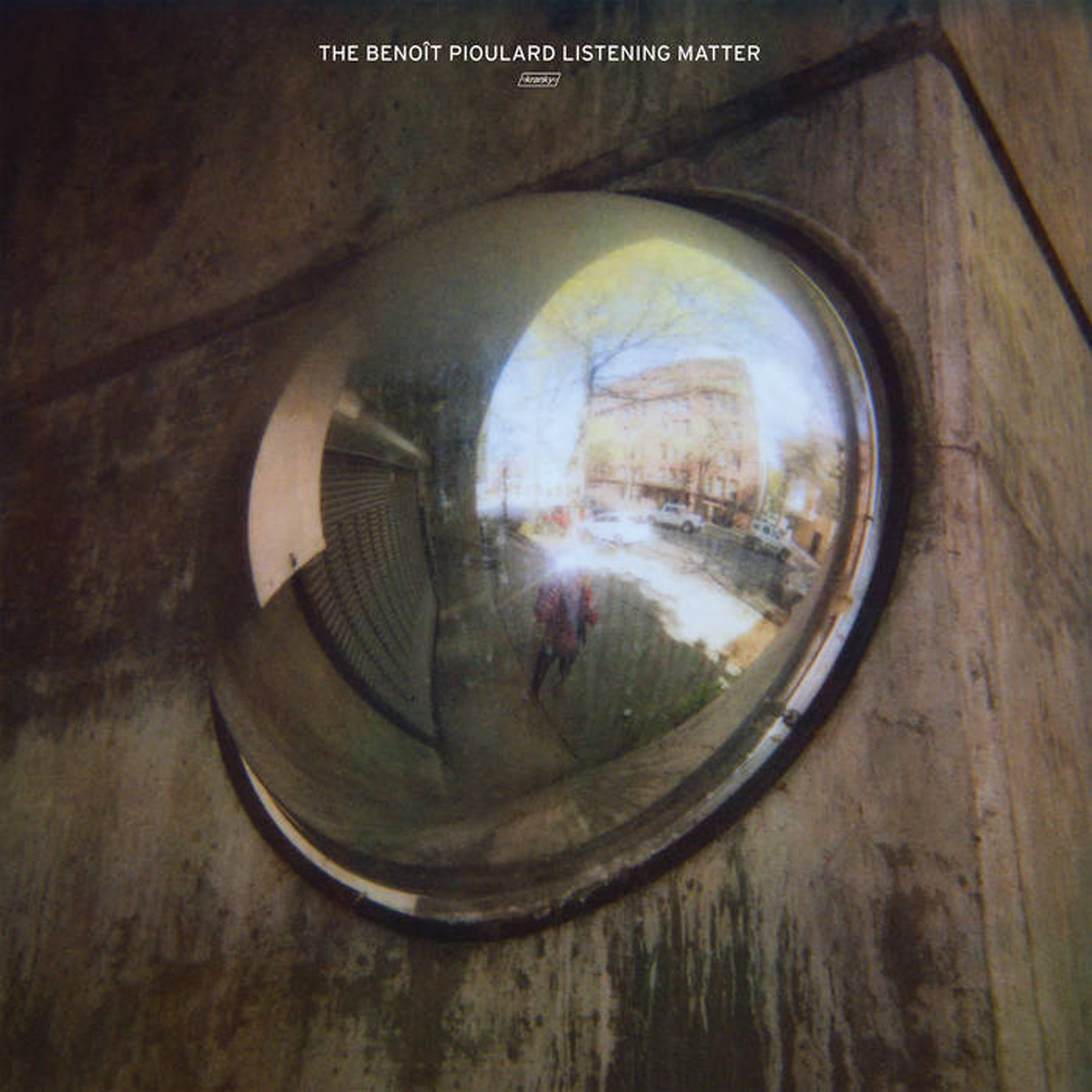 Unlike most Benoît Pioulard enthusiasts, I connect most strongly with Thomas Meluch’s recent instrumental side, so I was a little bit heartbroken when he decided to end his recent hot streak in that regard with a return to more song-based work.  Personal preferences aside, however, Meluch's latest release is an intriguing and unusual one, as he seems to be simultaneously growing more ambitious with his arrangements and more abstract with his structures.  He also seems to be making a conscious effort to be a bit more upbeat and effervescent, albeit in his own muted way.  The overall result admittedly has a "transitional album" feel at times, but The Benoît Pioulard Listening Matter definitely takes Meluch's "ambient pop" in a subtly more sun-dappled, blearily vaporous, and fragmented direction.
Unlike most Benoît Pioulard enthusiasts, I connect most strongly with Thomas Meluch’s recent instrumental side, so I was a little bit heartbroken when he decided to end his recent hot streak in that regard with a return to more song-based work.  Personal preferences aside, however, Meluch's latest release is an intriguing and unusual one, as he seems to be simultaneously growing more ambitious with his arrangements and more abstract with his structures.  He also seems to be making a conscious effort to be a bit more upbeat and effervescent, albeit in his own muted way.  The overall result admittedly has a "transitional album" feel at times, but The Benoît Pioulard Listening Matter definitely takes Meluch's "ambient pop" in a subtly more sun-dappled, blearily vaporous, and fragmented direction.
The listening matter in question teasingly opens with a brief and gorgeously lush drone piece ("Initials B.P.") before the understated and elegantly orchestrated pop extravaganza begins in earnest with the following "Narcologue."  Tellingly, the very first lines that Meluch sings are about how he finally found the song he wanted, but it disappeared.  For better or worse, that statement is probably the overarching theme of the album, as The Benoît Pioulard Listening Matter is chock full of great hooks and melodies that feel effortlessly tossed off or aborted prematurely.  This is very much an album of wonderfully glittering moments of maddeningly ephemeral pop genius.  The best example of this tendency is probably the wonderfully driving and uncharacteristically rapturous "Like There’s Nothing Under You," which exasperatingly bows out after just over a minute.
Despite Meluch's casual disregard for fully exploiting his perfectly crafted hooks, he clearly put an enormous amount of work into meticulously layering and texturing all of these fleeting vignettes, peppering them with odd percussion and subtly hallucinatory field recordings.  Meluch has stated in interviews that those recordings often tend to have personal significance for him and trigger memories when he hears them again, which is an admirably sneaky backdoor way to infuse his somewhat mannered, deadpan pop with hidden depth and mystery.  I certainly appreciate that aspect of the album myself, as the evocative and subtle sublayers make for rewarding repeat listening.  That said, it is the actual songwriting makes me want to listen repeatedly in the first place, so the songs with the strongest hooks tend to be my favorites (provided they stick around long enough to grab me).  Aside from the lush and delirious first single "Anchor as the Muse," Meluch saves most of his best pieces for the second half of the album, particularly "A Mantel for Charon," which I would describe as stomping and soaring…by Benoît Pioulard standards, at least (it still manages to remain characteristically dream-like and soft-focus).  The jangling and clap-filled "The Sun is Going to Explode But Whatever Its OK" is yet another stand-out, as its joyous music is amusingly undercut by Meluch's deadpan delivery and dark sense of humor.
In a perverse way, the problems with The Benoît Pioulard Listening Matter are part of what makes it such an unusual and intriguing album.  Meluch seems to have been pulled in a number of seemingly disparate directions here, as Listening Matter sounds like he started out to make a glorious bedroom-pop Pet Sounds-style opus, but could not fully commit to it because being so nakedly poppy did not sit well with his muted, sleepy, and "underachiever" aesthetic: he avoids being gauche or heavy-handed to an almost self-sabotaging degree.  It also seems like Meluch is still (rightly) somewhat in the thrall of his recent instrumental bender, as a good number of these "songs" are brief, wordless interludes that would have been album highlights if they had stuck around long to leave an impression.  Aside from a handful of 3-minute pieces, this album rushes by like a goddamn whirlwind.  On the bright side, Meluch certainly did not lack inspiration or great ideas and he undeniably threw himself into presenting them all beautifully.  Consequently, The Benoît Pioulard Listening Matter is quite a likable album–I just cannot shake the feeling that there is an even better one lurking in this material that may have come out if Meluch had not condensed so many ideas into so short a span.
 
Read More

